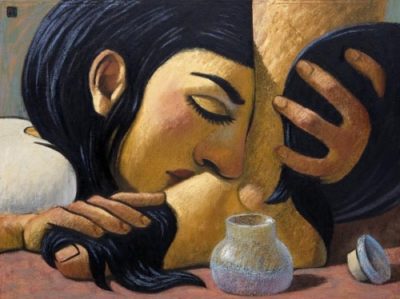 “So, I tell you, her many sins have been forgiven; hence, she has shown great love.” Love does not earn forgiveness, rather the experience of forgiveness leads to love. Jesus teaches this message in today’s Gospel.
“So, I tell you, her many sins have been forgiven; hence, she has shown great love.” Love does not earn forgiveness, rather the experience of forgiveness leads to love. Jesus teaches this message in today’s Gospel.
Today’s Gospel has had a history of misinterpretations. First of all, the “sinful woman” in the Gospel is nameless and is not Mary Magdalene who is not called a sinner in the gospels. Mary is cured by Jesus and supported him: “Accompanying Jesus were the Twelve and some women who had been cured of evil spirits and infirmities, Mary, called Magdalene, from whom seven demons had gone out…who provided for them out of their resources.” (Luke 8:1-3).
Secondly, the sinful woman does not earn forgiveness through an act of love as some old translations wrongly suggest: “her many sins have been forgiven, because she has shown great love.” The lectionary has the correct translation: “her many sins have been forgiven; hence, she has shown great love.” Showing great love is a consequence of experiencing forgiveness not the cause. Love does not earn forgiveness, rather the experience of forgiveness leads to love.
We cannot earn God’s love and forgiveness. It is a gift that God graciously bestows on us. When we truly allow ourselves to receive this gift and even to be overwhelmed by God’s mercy and love we are empowered to show great love and forgiveness to others. Jesus’ teaching in today’s Gospel is summed up in Jesus’ commandment: “I give you a new commandment: love one another. As I have loved you, so you also should love one another.” (John 13:34)